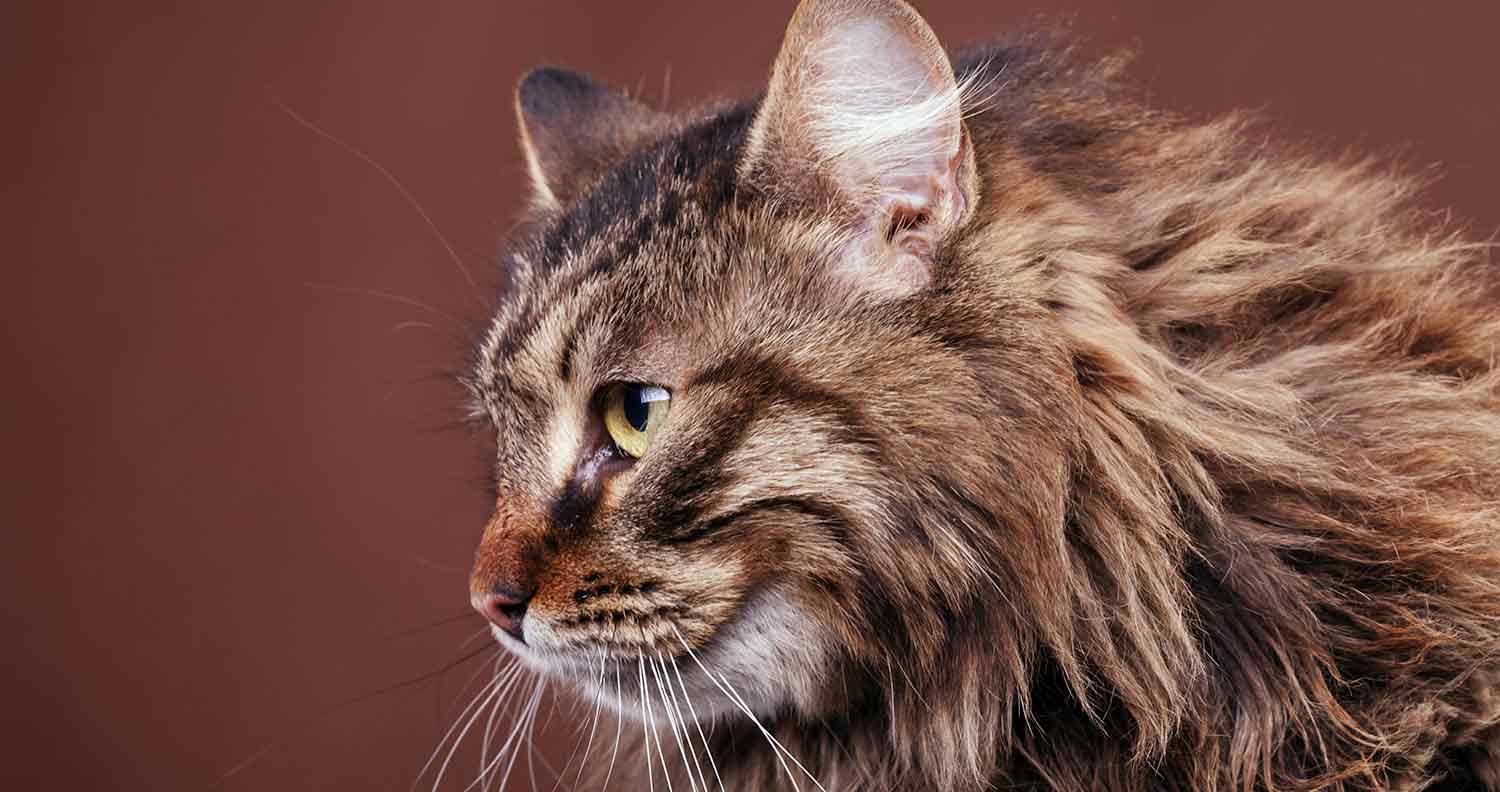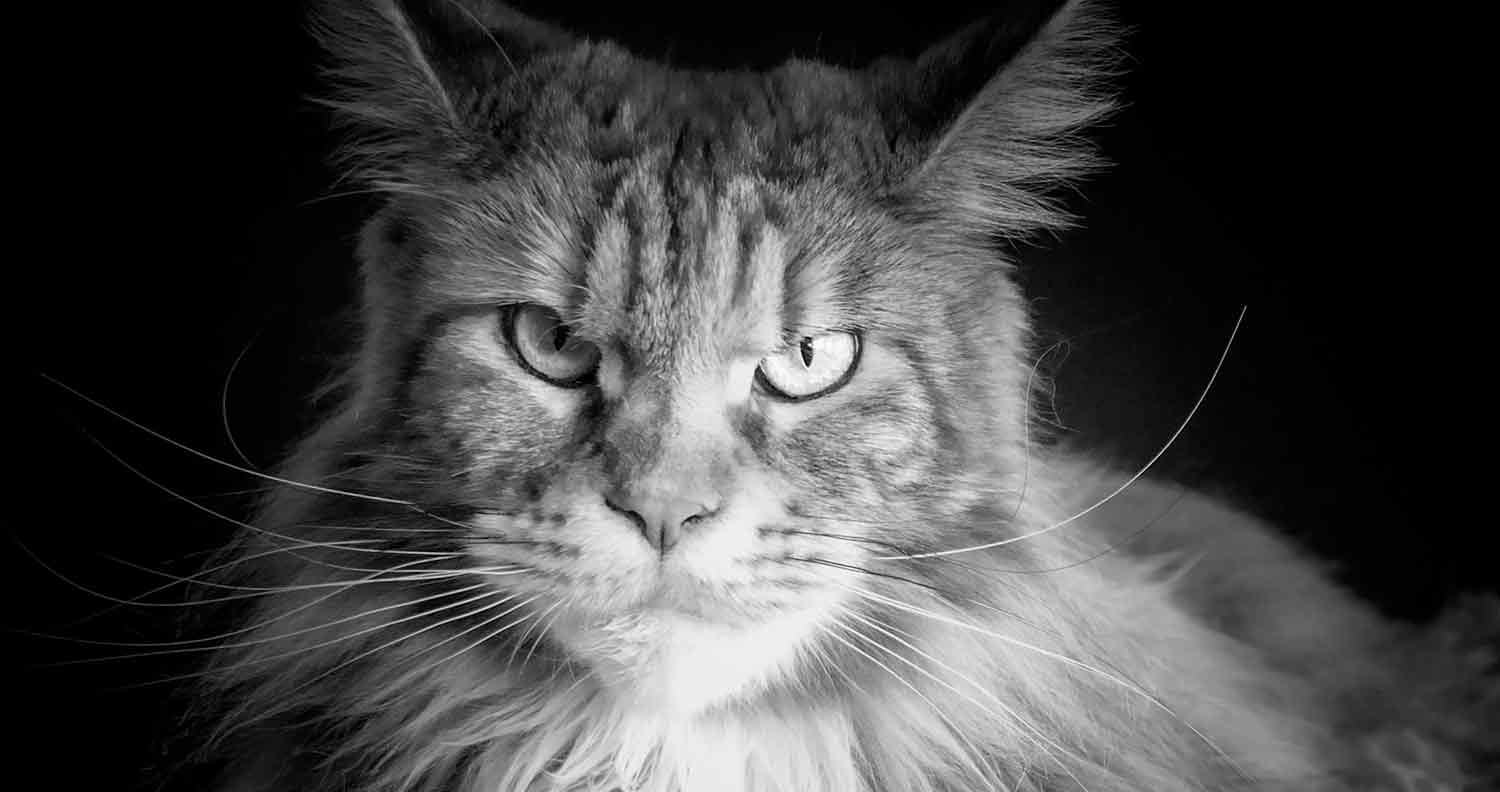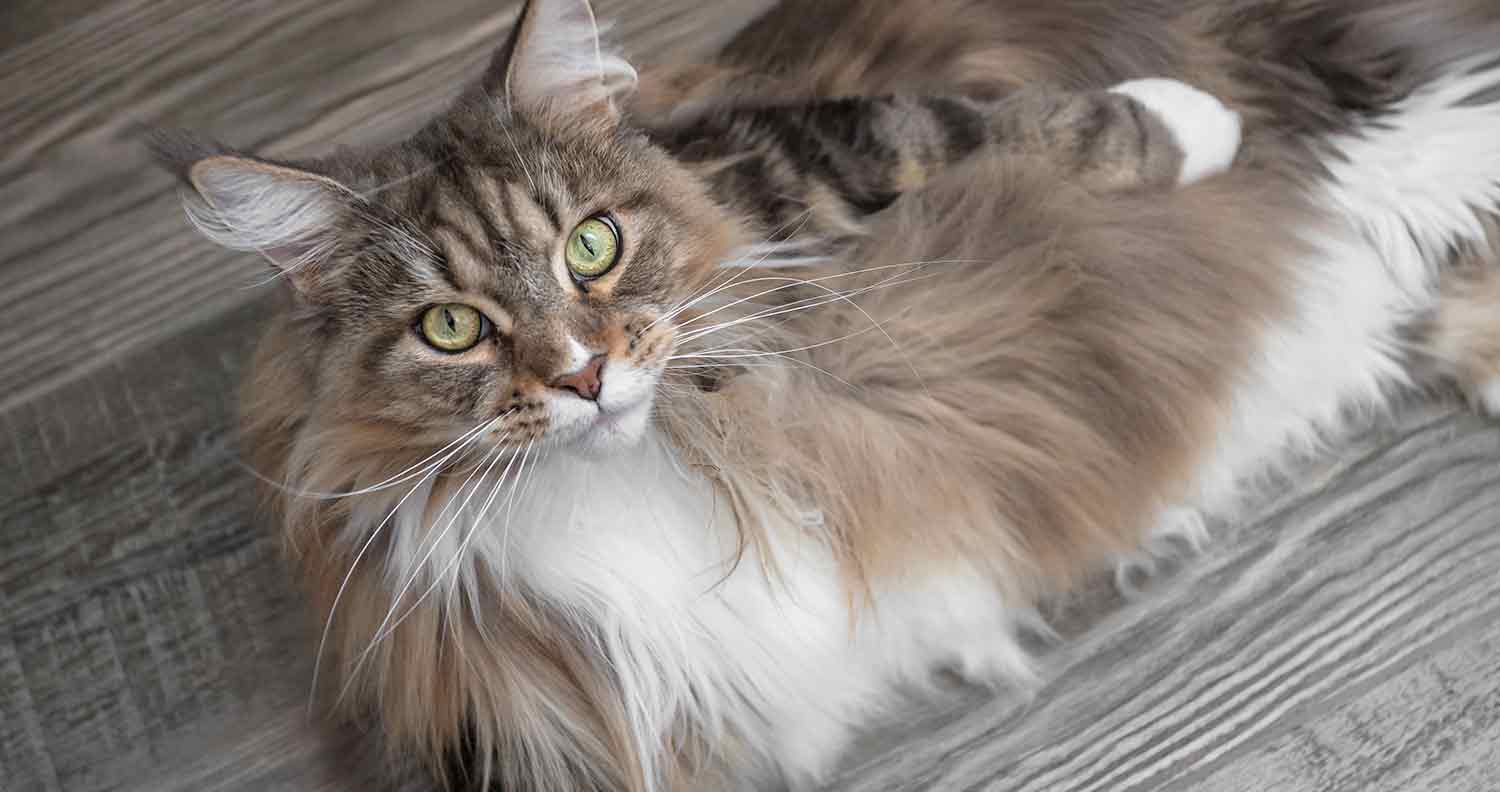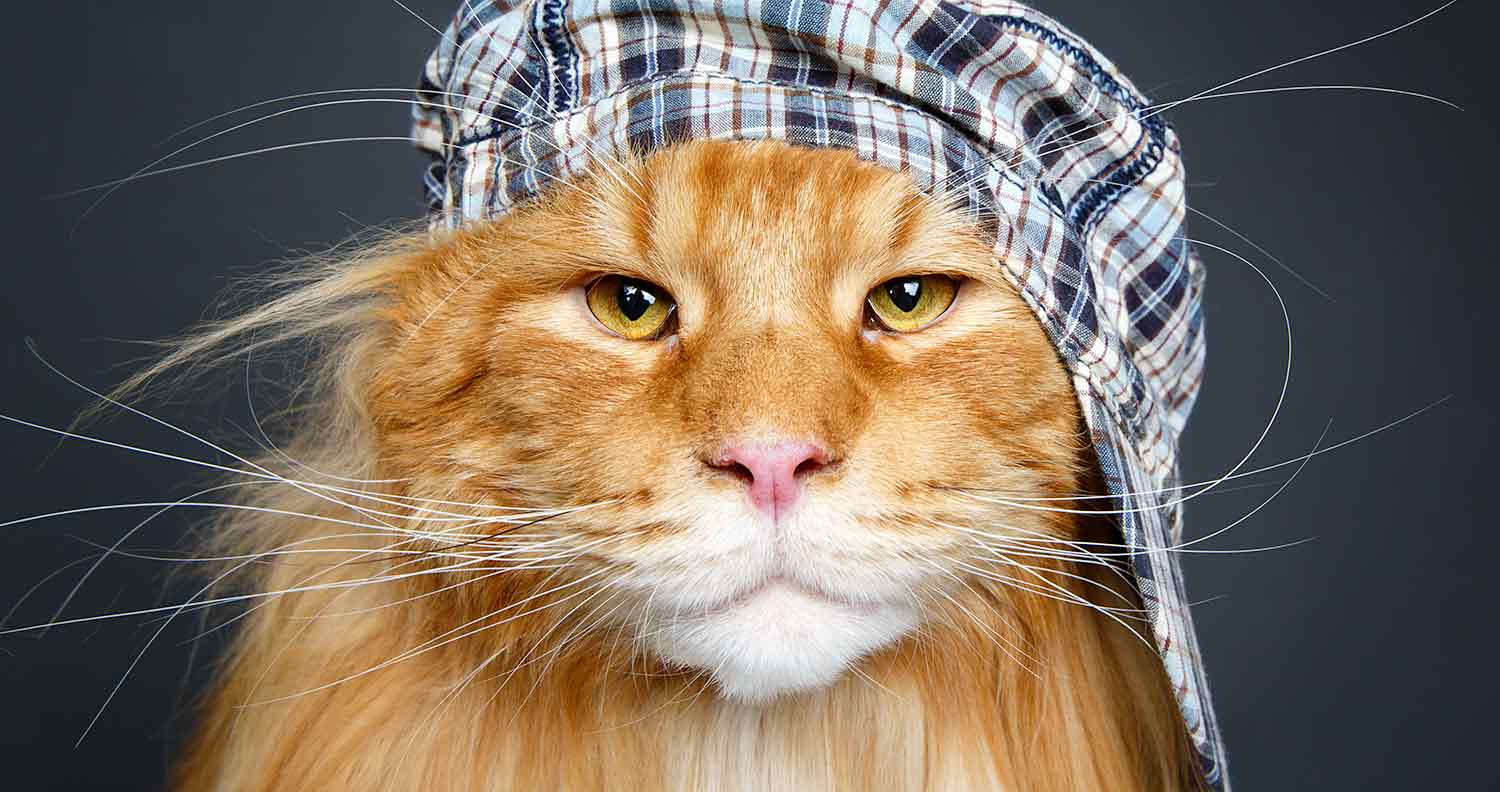How Long Does a Maine Coon Live? (Factors that Affect a Maine Coon Cat Lifespan)
Share:

How long does a Maine Coon live? Ouch!
We all love our pets and the life expectancy question is always such a heart-wrenching topic.
Maine Coons are so cute and fluffy and, of course, you want to spend a lifetime with them.
Unfortunately, like all cats, this long-haired cat breed has a shorter lifespan than humans.
The average lifespan of a Maine Coon is 12.5 years. This means some of them may reach 15 years while others live under 10 years.
The main factors that impact a Maine Coon cat lifespan include diet, lifestyle, genetics, level of movement, and frequency of vet checks. Lots of things, which we cover in detail for all cat breeds in this article - How Long Do Cats Live?
The Guinness world record holder for the oldest living cat was Corduroy. Corduroy was a 26-year-old Maine Coon. He lived in Sister, Oregon in the United States and holds the 'official' record.
However, the oldest Maine Coon cat, that was 'unofficially' recorded was a cat called Rubble.
He was a whopping 31-year-old Main Coon from Devon in England.
The following post touches upon each factor influencing Maine Coon's average life span and gives tips on how to increase our beloved Maine Coons lifespan.
How Long Does a Maine Coon Live? (in short)
How long do Maine coons live? With only a few genetic predispositions to disease, the Maine Coon average life span is generally quite long.
According to studies, about 3/4 of all Maine Coon felines live more than 12.5 years while about half of this breed's representatives live 10 years or longer.

Read this next: The Maine Coon: Cat Breed Profile
Maine Coon Cat Lifespan Factors
Here is a list of factors that influence the average Maine Coon cat lifespan.
1. Diet
A healthy diet has a crucial role in making a Maine Coon live long. You should offer your kitty a well-balanced, high-protein diet plan based on rich amounts of protein, minerals, and nutrients.
Try to minimize the intake of fatty food to reduce the risk of obesity, heart conditions, and gastrointestinal distress.
The less fat your kitty consumes, the longer it will live. Simple
Furthermore, give your cat dry food as often as possible as it keeps its cat's teeth and gums healthier by minimizing the buildup of tartar.
Overfeeding
While food is important for a cat's growth, too much food is a serious risk to its health.
Overfeeding can cause obesity which threatens the heart's activity and reduces the effectiveness of other organs.
As a result, the Maine Coon may live shorter than expected for this breed.
If you notice your feline gaining weight, put it on a low-calorie diet plan and encourage it to exercise.
2. Weight
How much should a Maine Coon weigh?
Maine Coons are one of the biggest and heaviest home cats.
They experience a faster growth rate than other feline breeds. The healthy weight of adult male Maine Coons range between 6.8-11.3 kg (15-25 lb).
Adult female Maine Coons should weigh from 3.6 to 5.4 kg (10-15 lb). If your cat weighs less or more, you may need to adjust its diet.
3. Common Diseases
What diseases Maine Coons are most vulnerable to?
Maine Coons usually have good health. Like any other cat, though, they may get ill. They may develop disease due to genetic defects or unhealthy lifestyles.
Here are some of the main illnesses in Maine Coons you should look out for:
Obesity
Most cats need 2 years to get physically mature. Maine Coons reach physical maturity in 4 years.
And when they turn 2 years, their owner might think that their body isn't properly developing.
This makes them give their "underweight" felines more and more food, trying to help them gain weight.
Unfortunately, overfeeding only leads to the cat getting obese. Obesity gives birth to many other health problems, including heart issues, difficulty breathing, and musculoskeletal disorders.
Consider weight loss food if you feel your is getting a tad too round!
Read this next: How Much Should I Feed my Cat? A Simple Cat Feeding Guide
Spinal Muscular Atrophy
Spinal muscular atrophy is a genetic disease that reduces the lifespan of Maine Coons.
The first symptoms appear at the age of 3-4 months. It is characterized by the loss of motor neurons that weakens the limb muscles. As a result, the cat adopts an unstable gait and an abnormal posture.
This condition isn't fatal and cats having it can live life indoors. Unfortunately, Spiral Muscular Atrophy can't be treated.
The limb muscles will get progressively weaker up until they get totally paralyzed.
Hip Dysplasia
Hip dysplasia is a common condition in Maine Coons due to their large and heavy body.
It happens when the joint socket doesn't support the hip ball well. It can easily cause bone dislocation and make the joint wear out faster, leading to arthritis.
If you notice your cat changing its walking style, limping or not using a limb while walking, take it to the vet.
4. Exercise
Your Maine Coon's lifespan is directly impacted by how much your kitty moves.
The more exercising it does, the better its cardiovascular system and physical condition. If your cat is lazy, encourage it to move by offering it captivating toys and stimulating its hunting instinct.
To get your Maine Coon more motivated to engage in physical activity, play with it personally and reward it with treats.
Playtime
Get them and keep them active!
There are plenty of playful activities you can engage your cat in. The most important is to make it move as much as possible.
If you are running out of ideas, you can place a string on the floor near your feline and drag it towards you. This will stimulate its hunting instinct and make it chase the string until it catches it.
Also, you can play the bubble game with your Maine Coon. Your furry friend will be attracted by the floating and perfectly shaped bubbles and hunt them all over the room.
This fun activity will greatly improve its mental abilities and physical condition.
If Possible, Let Them Roam
If you allow your cat to roam outside all day, it will do a ton of movement that will positively impact its health.
If you keep your feline indoors, you will have to look for ways to make it move more. Luckily, there are many ideas you can take into consideration.
For example, you can take your kitty for a walk or buy a cat tree for it to climb on and get off when boring.
Extra Large Cat Trees
Given the Maine Coon's extra-large body, a standard-size cat tree will not provide it with the needed exercise.
You should opt for a large cat tree so that your feline gets enough movement and feels comfortable climbing the tree and sitting on it.
Also, you should make sure the structure is made of high-quality materials and is sturdy enough to support the heavyweight body of a Maine Coon.
A fall from the tree's top platform can cause serious injury.
Take Them For a Walk on a Leash!
Don't laugh but Maine Coons are remarkably good on leads. Unlike many other breeds, I could easily mention.
Give it a whirl, you may get a pleasant surprise.
Even if you have an indoor Maine Coon, you should make an effort to take it for a walk a couple of times a week.
This will satisfy its vital need for movement and keep its body in shape. That being said, buy your beloved furball a leash.
Make sure the cat leash and harness are made of quality materials and provide maximum comfort while worn.

Read this next: Best Cat Harness and Leash – 15 Top Rated Harnesses for Cats
5. Genetics and Breeding
While you can solve the exercise issue, you can't do anything with genetic defects.
Some Maine Cats may get born with inherited health problems that are hard to treat or don't have treatment at all.
While some allow for the cat to live a long life, others shorten its lifespan significantly.
Responsible Maine Coon Breeders
Responsible breeders check their felines for inherited diseases long before letting them breed.
In this way, they make sure that kittens will not have genetic predispositions to health complications.
That being said, try to buy Maine Coon kittens only from reliable breeders.
Yes, they come at a higher cost but they are potentially much healthy and have a longer lifespan.
Backyard Maine Coon Breeders
Unlike responsible breeders, backyard breeders don't test their cats for genetic disorders. This increases the risk of kittens having genetic defects.
What's more, backyard breeders keep the price high, pretending to sell the highest quality Maine Coons.
To make sure you don't fall into the trap of backyard breeders, you should look for several signs that betray their ill intentions.
First of all, they don't provide the buyer with an official confirmation that the kitten and its mother have undergone a genetics test.
Also, they offer a minimal health guarantee.
While most responsible breeders offer 5 years to lifetime health guarantee, scammers offer only 1 year.
This means that if the cat develops a genetics-caused disease after 1 year of living with you, you won't be able to return it to its breeder.
And yes, most backyard breeders sell kittens on eBay, Craigslist, and other similar sites.
They don't care who gets the kitten as profit is their main point of interest. On the other hand, responsible breeders are cat fanatics who want to make sure their kittens end up in good hands.
That's why they usually have a website where they teach potential buyers how to take care of kittens and guide them through the treatment of diseases.
6. Regular Medical Care
Regular medical check-ups ensure that illnesses and diseases are spotted in their early stages, making treatment easier, faster, and cheaper.
So if you want your Maine Coon to beat longevity records, take it to the vet often.
Also, make sure to keep an up-to-date record of your feline's immunization.
All super important!

Read this next: An Owner’s Guide to Cat Vaccinations
How Long Does a Maine Coon Live? The Verdict
How long does a Maine Coon live for? It really is a tough question as there are many factors that impact a Maine Coon Cat Lifespan.
Cat owners can have control over some of them, for example feeding the feline healthy food or encouraging it to exercise.
Others, like genetics, cannot be influenced. Unfortunately, a genetic defect can shorten the lifespan of your Maine Coon.
Taking them to the vet regularly can help reduce the impact of a disease by picking it up early and preventing it from evolving into more severe forms.
Share:

